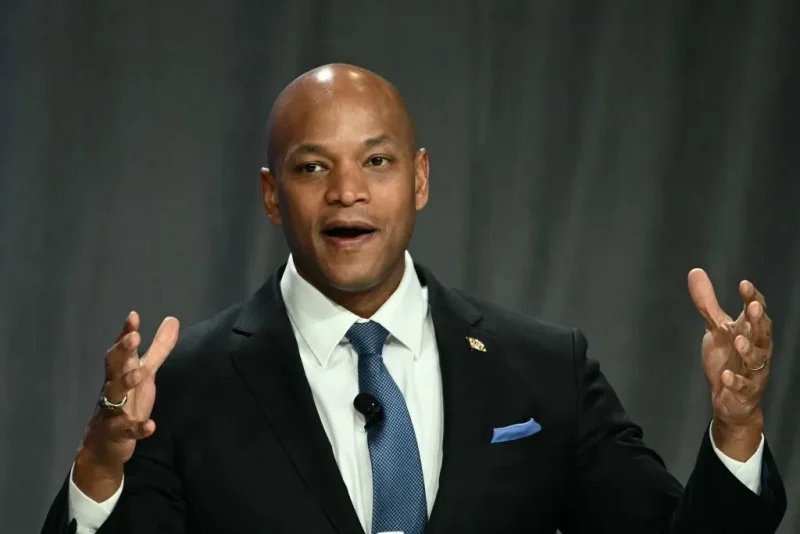Maryland’s Democratic Governor Turns Down Reparations Study Bill, Stresses Urgency for Immediate Solutions – One America News Network

OAN Staff James Meyers
3:08 PM – Monday, May 19, 2025
Maryland’s Democratic Governor Wes Moore has opted to veto a state-sanctioned bill aimed at forming a commission to evaluate and propose reparations related to racial discrimination and historical slavery.
Historically, Maryland officially codified slavery in 1664, enacting laws that condemned African slaves and their descendants to lifelong servitude. Before this, Africans in Maryland—similar to other colonies—were frequently indentured servants who had the potential to gain their freedom.
In his veto letter released on Friday, Moore referenced several existing commissions that Maryland has already established, including the Maryland Lynching Truth and Reconciliation Commission.
Advertisement
“I will always safeguard and uphold the comprehensive history of African Americans in our state and nation,” Moore articulated in his letter. “However, given the many significant studies that have already been conducted on this matter over the past nearly three decades, now is the time to concentrate on actionable efforts: addressing the racial wealth gap, promoting homeownership, supporting entrepreneurs of color, and bridging the foundational disparities that perpetuate inequality—from food insecurity to education.”
“We are actively collaborating with leaders statewide to elevate Black families and tackle racial inequalities within our communities,” Moore continued. “This context informed my challenging decision. While I value the efforts that informed this legislation, I firmly believe now is not the time for an additional study. Now is the moment for continued action that produces tangible results for the communities we serve.”
The legislation, regarded as a key priority by the Legislative Black Caucus of Maryland, outlined various potential reparative actions—including public apologies, financial compensation, debt forgiveness, and tuition assistance.
The bill passed in April with a significant 101-36 vote in the state House.
Following the veto, the Legislative Black Caucus expressed strong criticism of Moore’s action.
“At a time when the White House and Congress are targeting Black communities, dismantling diversity initiatives, and deploying damaging coded language, Governor Moore had a moment to demonstrate that Maryland would courageously recognize our painful past and the pressing need to address it,” the group stated.
“Instead, the state’s first Black governor opted to reject this historic legislation, which would have advanced the state toward directly remedying the consequences of slavery.”
Democratic leaders from other states, including California, Colorado, Massachusetts, New York, and Illinois, are also pushing for reparations efforts, asserting that these are necessary to rectify the legacy of slavery.
However, it’s crucial to note that the Democratic Party—established in the 1820s under President Andrew Jackson—was initially rooted in pro-slavery ideologies, particularly in Southern states, where many Democrats defended slavery and resisted efforts to abolish or limit it.
While no federal reparations legislation has been enacted so far, Senator Cory Booker (D-N.J.) and Representative Ayanna Pressley (D-Mass.) have reintroduced H.R. 40—a bill first proposed in 1989—aimed at forming a federal commission to investigate the enduring effects of slavery and explore possible remedies.
Stay updated! Get breaking news alerts directly in your inbox for free. Sign up here. https://www.oann.com/alerts
